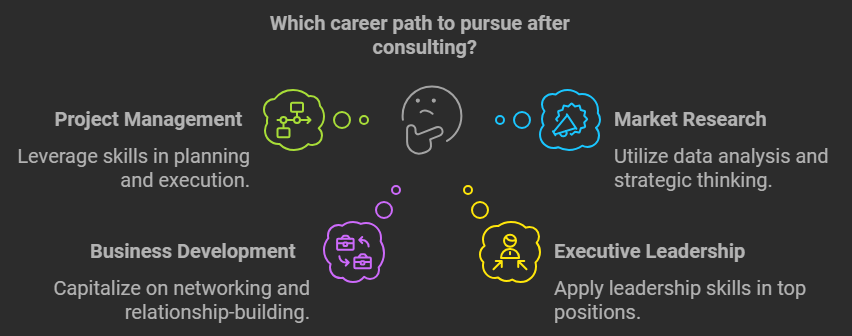Audit Tricks in Management Consulting
Management consultants often use audit tricks that can harm a company’s finances. These tricks range from manipulating data to distorting results. They can cause serious problems for companies and their stakeholders.
In this article, we’ll discuss some of these common tricks and the potential repercussions. Companies need to grasp these tactics to shield themselves from possible fraud and deceit during audits.
Consulting vs Auditing: What’s the Difference?
What Do Consultants Do?

Consultants give expert advice and guidance to organizations. They analyze and solve issues within the company to improve performance. They use their knowledge and experience to find problems, assess the current state, and make recommendations for improvement.
Consultants have a broader scope of work compared to auditors. They deal with strategic planning, management, and operational systems. Auditors focus on evaluating internal controls, assessing risks, and ensuring compliance.
Successful consultants need various skills, including critical thinking, problem-solving, communication, and data analysis. They should be adaptable to different industries and provide innovative solutions to complex business challenges.
What Do Auditors Do?
Auditors evaluate, analyze, and document financial records and internal controls. They ensure compliance with regulations and policies, identify financial risks, and recommend improvements. Auditors play a key role in maintaining transparency and accuracy in financial reporting. To succeed in this field, individuals need a strong background in accounting, finance, and internal controls.
Attention to detail, critical thinking, and analytical skills are essential for conducting audits and identifying areas for improvement. Staying informed about regulatory changes and industry trends is also crucial for effectively guiding organizations.
Consulting vs Auditing: Who They Hire
Skills of a Good Consultant
A good consultant should have strong analysis, problem-solving, and communication skills. These skills help them assess situations, identify problems, and propose effective solutions.
Consultants must also communicate clearly and collaborate well with clients and colleagues. They can navigate complex situations and build trust by building positive and respectful relationships.
Additionally, consultants need critical thinking and problem-solving skills to approach challenges innovatively. This involves identifying risks, assessing options, and making informed decisions to drive positive outcomes in various environments.
These skills are crucial for consultants to succeed in their roles, especially in the fast-paced and ever-changing world of management consulting audit.
Skills of a Sharp Auditor
Sharp auditors have a variety of important skills. They can interpret complex regulations, pay close attention to detail, and communicate effectively. These skills allow them to evaluate internal controls, assess risks, and create effective internal control plans.
By using their skills, sharp auditors ensure the accuracy of their work, helping businesses and organizations by identifying inefficiencies and mitigating risks.
They also provide valuable insights to improve operational processes.
Furthermore, they play a crucial role in safeguarding organizations and driving innovation by conducting quality audits and guiding compliance, efficiency, and effectiveness.
The Pay: Consulting vs Auditing
Consultants and auditors can have different salary ranges depending on the company, location, and experience level. Consultants generally have higher salary potential due to their broad work scope and the high demand for their expertise. On the other hand, auditors may have more stability with predictable bonus and incentive structures due to the firm’s pay scale.
Consulting offers wider career advancement opportunities and earning potential. Consultants have diverse exit opportunities and greater career development prospects. Meanwhile, auditors tend to have more confined work within the financial industry and limited exit opportunities.
As a result, consultants have a wider range of skills and diverse background requirements.
Balancing Work and Life

Busy Times for Consultants and Auditors
Consultants and auditors have different work scopes and exit opportunities. Consultants manage multiple client projects, requiring solid time-management skills. Auditors focus on ensuring compliance and accuracy within the financial industry. Consultants prioritize high-impact client projects, while auditors emphasize attention to detail and thoroughly examine financial records. Both need effective time management and organizational skills during busy periods.
Traveling for Work
Consultants and auditors often travel for work. This is especially true when they must be on-site for audits and consulting assignments. When planning work travel, they consider the client’s location, assignment duration, and the impact on their work-life balance. They aim to minimize travel time and reduce time away from home by carefully scheduling appointments and meetings. This preparation also involves finding efficient transportation and suitable accommodations.
While traveling for work, consultants and auditors make time for leisure and personal interests. They keep in touch with family and friends to make the most of their time away from home. They balance work commitments with relaxation and rejuvenation, maintaining a healthy professional and personal life balance.
Your Future in Consulting vs Auditing
Jobs After Being a Consultant

- After working as a consultant, individuals have many career options. They can move into project management, market research, business development, and executive leadership roles. They can also transition to operations management, financial services, or entrepreneurship.
- The skills gained as a consultant are easily transferable to other jobs and industries. Skills like problem-solving, data analysis, strategic planning, and effective communication are in demand in different fields. Former consultants often have strong leadership and project management skills, making them valuable in almost any industry.
- Thanks to their diverse professional backgrounds and experiences, former consultants have many job opportunities in the workforce. They can work in financial services, human resources, operations management, marketing, technology, or healthcare. They can also pursue entrepreneurship in different sectors or hold executive-level positions in organizations.
Jobs After Being an Auditor
Former auditors commonly transition into management consulting, financial analysis, risk assessment, and compliance management roles. These positions allow individuals to apply their skills in a broader business context. With strong financial and analytical skills, attention to detail, and an understanding of internal controls, former auditors can find fulfilling employment in industries like healthcare, technology, and manufacturing.
They can also use their experience to drive innovation and streamline operations. Other job opportunities include internal audit consultants, external audit advisors, and compliance analysts in both the public and private sectors, offering diverse responsibilities and potential for career development.
Learning and Meeting New People
Both consultants and auditors can benefit from networking to learn and meet new people in their industries. Consultants can use their project experiences and diverse skill sets to connect with professionals from different sectors, expanding their knowledge. Similarly, auditors can use their industry-specific knowledge to develop connections and deepen their understanding of specific industries.
Attending industry events and conferences is an effective strategy for expanding knowledge and professional connections. Networking at these events allows consultants and auditors to connect with industry leaders, potential clients, and professionals, keeping them updated on the latest industry trends, technologies, and best practices. Consultants and auditors can also leverage social media and platforms like LinkedIn to connect with industry professionals, share relevant content, engage in discussions, and join industry-specific groups.
Active participation in online forums, webinars, and panel discussions can help them stay connected with the industry and contribute to the collective knowledge of the professional community.
How Do You Pick Between Consulting and Auditing?
When to Bring in a Consultant
Bringing in a consultant can help when an organization faces complex challenges beyond its internal capabilities. Signs indicating the need for consulting services include stagnant growth, declining profits, inefficient operations, and lack of innovation. When deciding to bring in a consultant, factors include their expertise, potential return on investment, alignment with the organization’s objectives, and ability to work effectively with the internal team.
Consultants can offer valuable insights, fresh perspectives, and proven strategies to drive positive organizational change.
When to Do an Audit
Conducting an audit regularly is important to ensure that all business operations are running smoothly. Factors to consider when deciding when to do an audit include changes in management, financial distress, changes in business operations, mergers and acquisitions, and entering new markets.
It’s important to perform an audit when regulatory requirements change, business processes change, significant events like fraud or financial misstatement occur, or inefficiencies or areas for improvement within the organization need to be found.
Helping Your Business Grow

Types of Consultant Projects
Consultant projects can take different forms, like internal audit consulting and quality audit consulting.
Internal audit consulting concentrates on streamlining operations and fostering innovation within organizations. It involves assessing internal controls, evaluating risks, and creating effective internal control plans. For example, a project might involve conducting a SOX compliance audit for a biopharmaceutical company, focusing on financial compliance and integrity.
Quality audit consulting, on the other hand, helps organizations evaluate their compliance, efficiency, and effectiveness. It covers various audit types, including integrated, information technology, and energy audits. The main support needed for these projects is guiding and facilitating successful audit processes involving consultants and internal and external auditors to assess and improve organizational functions and operations.
Getting Support for Audits
To gain support from internal stakeholders for conducting audits, management consulting audit teams can implement various strategies, such as communicating the purpose and benefits of the audit process. They can also involve stakeholders in the audit planning and decision-making to ensure their concerns and perspectives are considered.
Additionally, seeking feedback and addressing potential resistance or skepticism can help gain support. External resources can be leveraged effectively by engaging specialized audit consultants who bring expertise, industry knowledge, and best practices. This can enhance the credibility and thoroughness of the audit process. Furthermore, fostering open communication and collaboration among different teams and departments is crucial to ensure audit support. This can be achieved through regular meetings, sharing progress updates, and involving relevant stakeholders in the audit process.
By improving communication and collaboration, management consulting audit teams can build trust and enthusiasm for the audit initiatives within the organization.

Vizologi is a revolutionary AI-generated business strategy tool that offers its users access to advanced features to create and refine start-up ideas quickly.
It generates limitless business ideas, gains insights on markets and competitors, and automates business plan creation.


